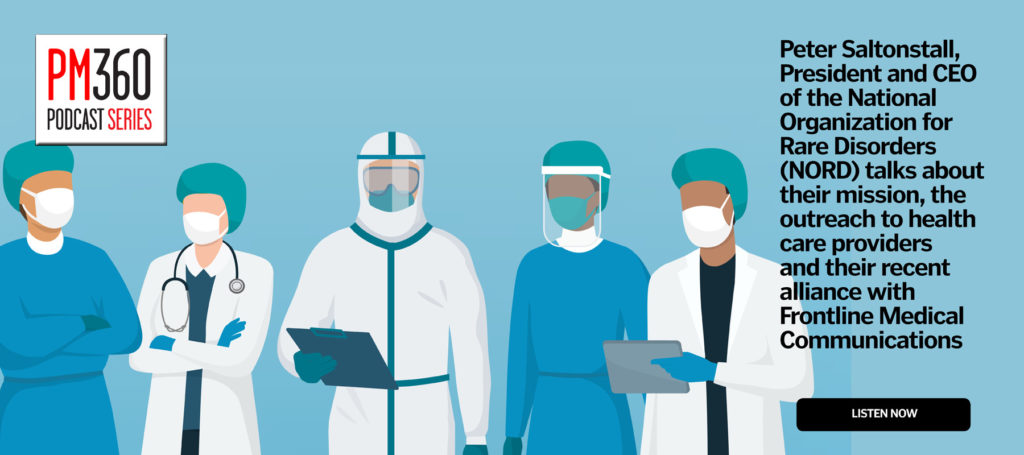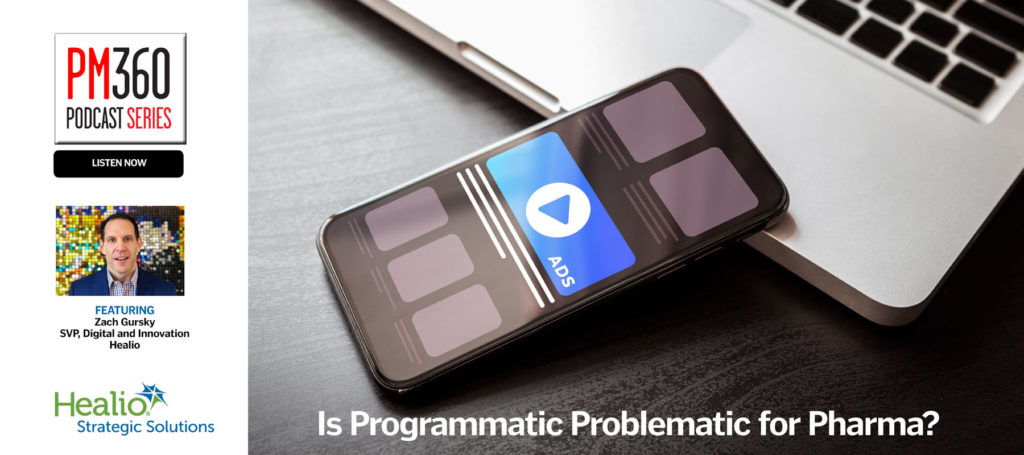
Is Programmatic Problematic for Pharma?
In the first part in a new series of podcasts with Healio, we explore the pharma industry’s issues with programmatic advertising. Zach Gursky, SVP, Digital and Innovation at Healio walks us through the issues that have made some pharma marketers reluctant to fully embrace programmatic buying and explains whether there really is any need to be concerned.
Additionally, we discuss what changes to expect for programmatic in a post-cookie world and examine the ways pharma marketers can start using programmatic more similarly to their CPG colleagues. And, of course, ultimately, how pharma marketers can successfully utilize programmatic for their brands.

How to Evolve and Mature Tech for Biotech and Pharma
Everyone always hears about the latest technology buzzwords and the great promise they hold, from the cloud to AI and machine learning to blockchain. But while their potential applications can often leave the most tech-savvy of us salivating, companies often want and need to know how those technologies can be used to help right now.
In the third part of our three series podcast with Vineti, Chief Technology Officer Phil Calvin speaks about the technology that most excites him and how the industry can already benefit from its use. Not only that, but he explains how life sciences companies can help to mature these technologies so they can better use them without worrying about the need to work out the kinks. In other words, he explains the optimal strategies to help implement these technologies for your company.
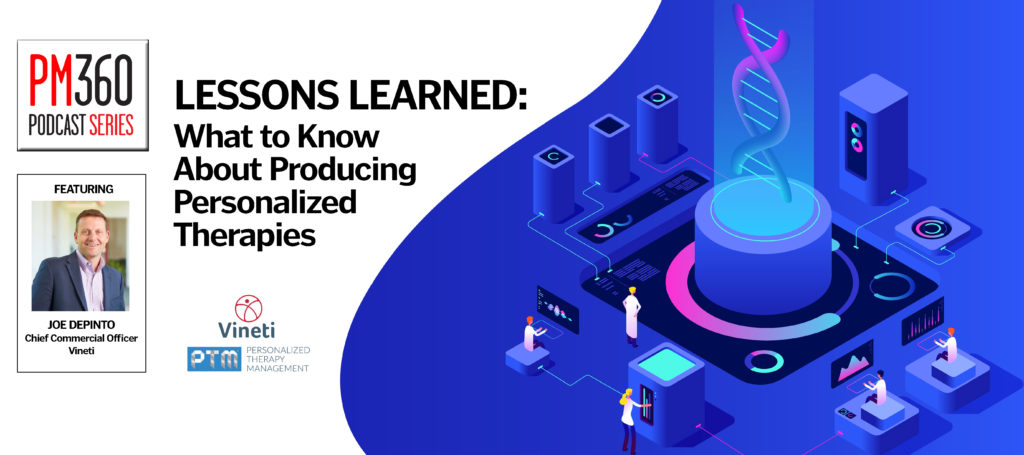
Lessons Learned: What to Know About Producing Personalized Therapies
In the second of our three-series podcast with Vineti, Chief Commercial Officer Joe DePinto provides a first-hand look at what it takes to actually produce personalized therapies at scale based on the work that Vineti is doing with companies in this space. He provides key lessons learned that span the developmental process from the clinical phase to commercial.
DePinto offers his take on the areas he sees companies struggle most with and what any company considering developing personalized therapies would need to know to be successful. And that includes what parts of the process may evolve in the future.
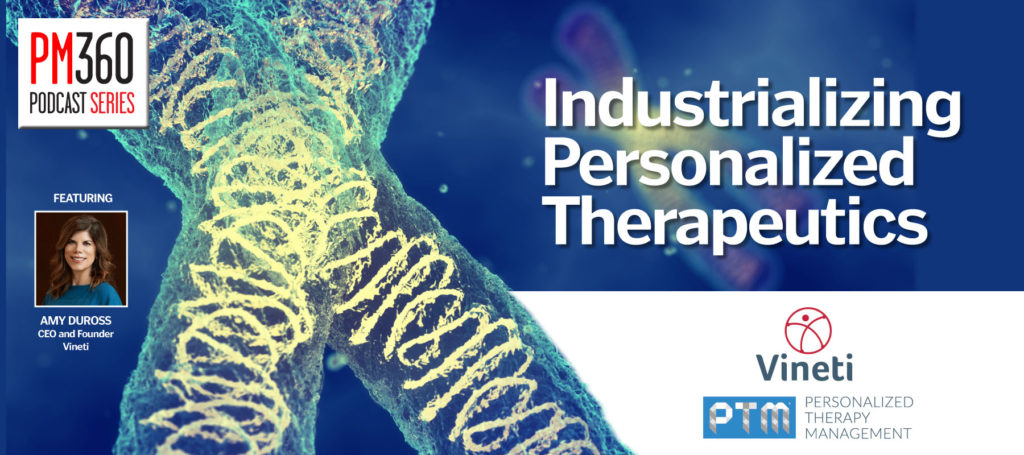
Industrializing Personalized Therapeutics: Can You Really "Mass Customize” Patient-specific Pharmaceuticals?
In the first of a three-series podcast with Vineti, CEO and Founder Amy DuRoss discusses the rapid growth of cell and gene therapies and whether it is possible to mass customize these types of therapies which are often made using cells directly from a patient or a donor.
DuRoss explains the challenges along the supply chain for personalized therapies that can make such a process difficult, but also what can and is being done to help streamline this process.
Finally, she looks toward the future and what may need to change as more personalized therapies are approved and hit the market.
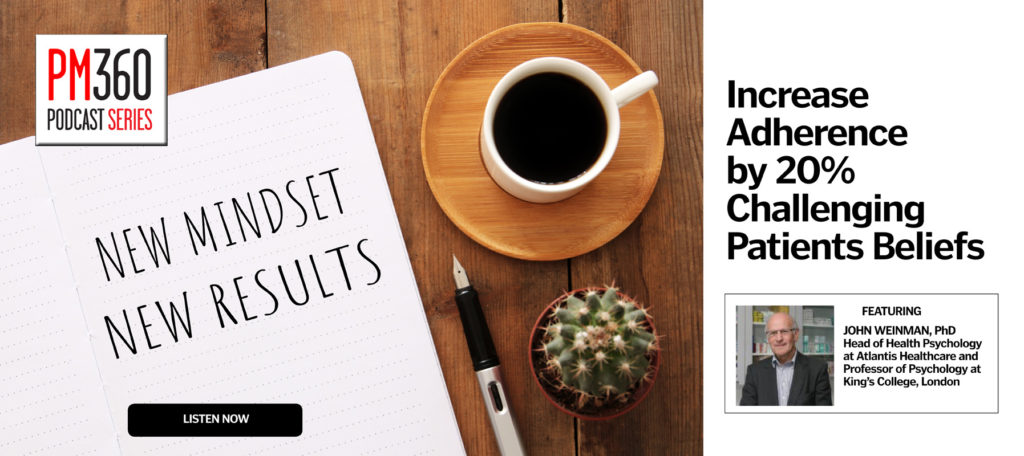
Increase Adherence by 20% by Challenging Patients Beliefs
John Weinman, PhD, Head of Health Psychology at Atlantis Healthcare and Professor of Psychology at King’s College, London, has been studying adherence for the past 25 years and one thing he has learned: Everything pharma thinks they know about adherence is wrong. Pharma’s traditional line of thinking is that patients simply don’t know enough about the treatment or just forget to take the medication. In reality, there could be anywhere between 20 to 30 reasons why a patient is nonadherent—and those reasons are very personal to that patient. Professor Weinman has discovered a way to identify the factors affecting each patient and what can be done to change the patient’s behavior in order to influence adherence. In fact, he offers a case study of a program that was able to improve adherence by 20%—and keep patients at that improved rate even after the program ended.
